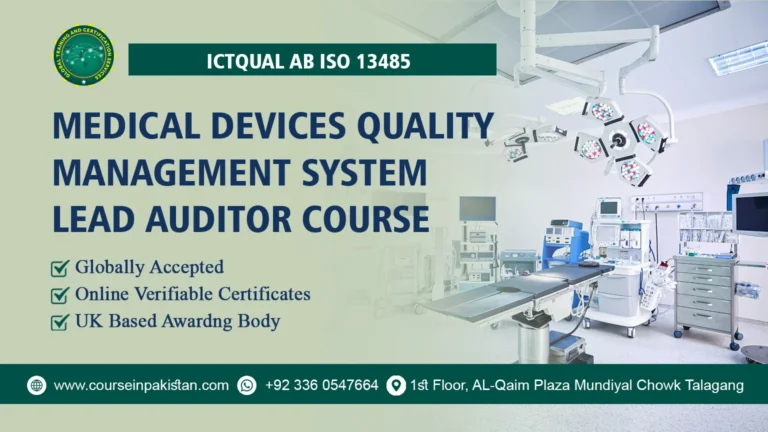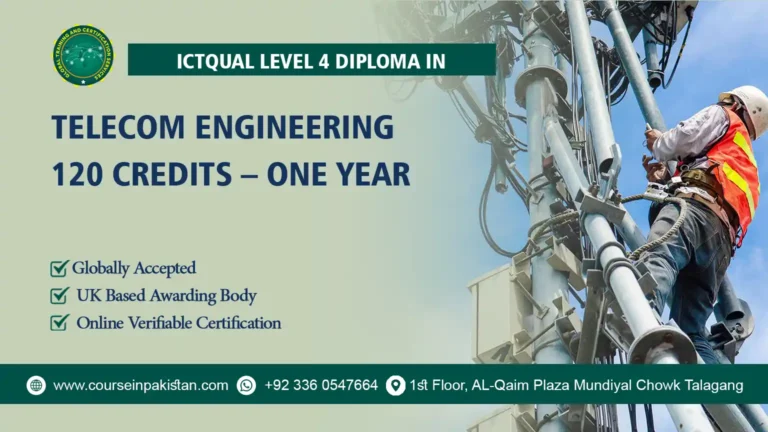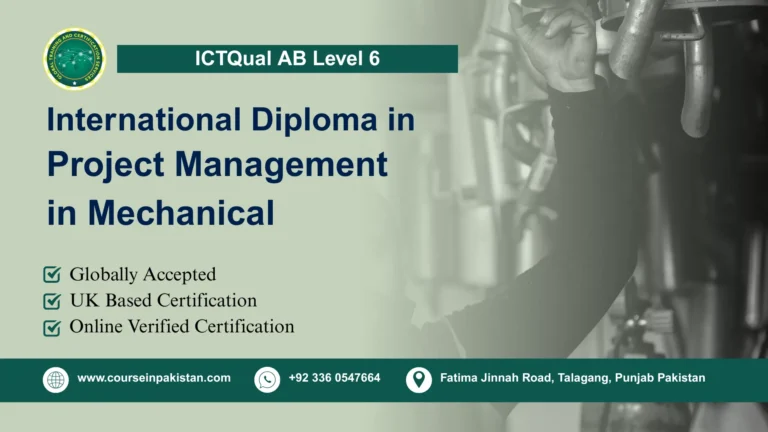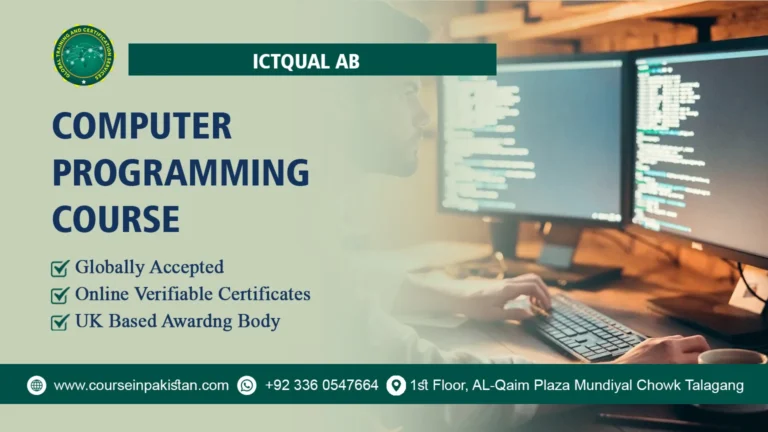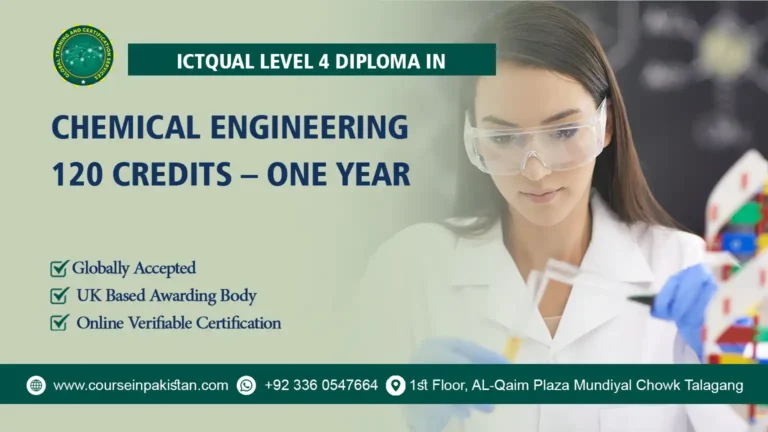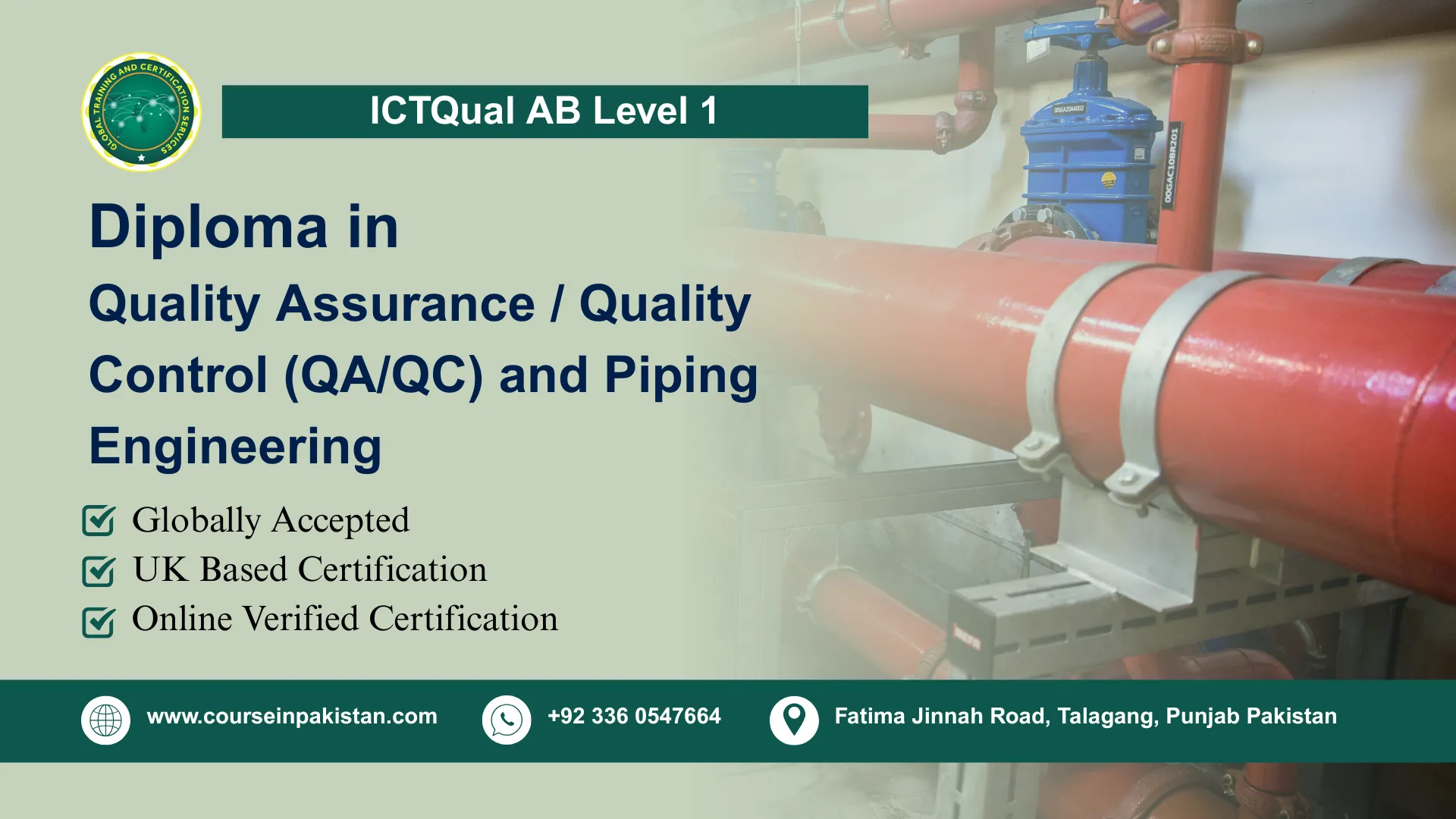
The ICTQual AB Level 1 Diploma in Quality Assurance / Quality Control (QA/QC) and Piping Engineering is designed to introduce learners to the fundamental principles of quality assurance and control within the engineering and piping industry. This entry-level program is ideal for beginners or those new to industrial QA/QC processes, providing a strong foundation in understanding quality standards, inspection techniques, and basic piping engineering concepts. Learners will explore the role of QA/QC in maintaining safety, compliance, and reliability in industrial projects, while gaining hands-on exposure to simple inspection procedures, documentation, and industry best practices. The course focuses on developing both technical knowledge and practical skills that are directly applicable in entry-level roles.
This qualification is suitable for individuals seeking to start a career in QA/QC, piping, or related engineering fields. Participants will gain an understanding of basic piping layouts, joints, and materials inspection, as well as an introduction to quality control methodologies. The course emphasizes awareness of safety, regulatory requirements, and process compliance, ensuring learners are prepared to contribute effectively to industrial projects. By completing this program, learners will acquire the confidence and competence to perform basic QA/QC tasks, support engineering teams, and establish a solid foundation for further professional development.
Course Overview
The ICTQual AB Level 1 Diploma in QA/QC and Piping Engineering provides learners with a structured introduction to the essential concepts and practices of quality assurance and piping engineering. The program covers the fundamental aspects of QA/QC, including understanding materials, basic inspection techniques, and the principles of conformance and tolerance. Learners will gain practical skills in observing, reporting, and documenting quality-related findings, providing a critical understanding of how QA/QC processes support industrial and construction projects.
In addition to technical knowledge, the course encourages the development of problem-solving and analytical skills. Learners will explore basic inspection procedures, introductory non-destructive testing methods, and the importance of adhering to industry standards and regulatory requirements. Through practical exercises and guided learning, participants will be able to identify defects, understand corrective measures, and apply foundational QA/QC principles to real-world scenarios. This course lays the groundwork for future progression into higher-level QA/QC qualifications and specialized roles within the piping and engineering industry.
Key Highlights of the Course:
- Entry-level introduction to QA/QC principles and piping engineering
- Hands-on experience with basic inspection techniques and documentation
- Introduction to materials, joints, and welding quality assessment
- Awareness of industry standards, regulatory compliance, and safety protocols
- Foundation for career progression in QA/QC and engineering fields
Course Benefits
This course provides learners with essential foundational knowledge and practical skills to kickstart a career in QA/QC and piping engineering.
Enhanced Technical Knowledge
- Understand fundamental QA/QC principles and basic piping engineering concepts
- Learn basic inspection methods and material evaluation techniques
Practical Skill Development
- Gain hands-on experience in quality inspections and documentation processes
- Learn to identify defects, report findings, and recommend simple corrective actions
Career Readiness
- Prepare for entry-level QA/QC or piping engineering roles
- Build a recognized qualification that opens pathways to further professional development
Industry Awareness
- Learn about regulatory requirements, safety standards, and industry best practices
- Develop an understanding of QA/QC processes in real-world engineering environments
Completing this course equips learners with the confidence, competence, and recognized qualification to begin a successful career in QA/QC and piping engineering, while providing a strong foundation for further advancement.
Course Study Units
This qualification, the ICTQual AB Level 1 Diploma in Quality Assurance / Quality Control (QA/QC) and Piping Engineering, consists of 5 mandatory units.
- Fundamentals of QA / QC principles and quality management systems
- Basic introduction to piping engineering terminology and components
- Introduction to inspection processes, documentation and reporting
- Health, safety and environmental awareness in piping operations
- Technical drawing and measurement basics for piping systems
Learning Outcomes
Fundamentals of QA / QC Principles and Quality Management Systems
- Introduction to Quality Assurance (QA) and Quality Control (QC) concepts
- Overview of quality management systems (QMS) and their purpose
- Understanding conformance, non-conformance, and corrective actions
- Key principles of quality standards and industrial compliance
- Role of QA/QC in ensuring safety, efficiency, and reliability in engineering projects
- Introduction to quality documentation and basic record-keeping practices
Basic Introduction to Piping Engineering Terminology and Components
- Overview of piping engineering and its applications in industry
- Common piping components: pipes, fittings, valves, flanges, and supports
- Basic piping terminology and symbols used in drawings
- Understanding piping materials, types, and specifications
- Introduction to piping layouts, systems, and their functional roles
- Importance of component selection in quality assurance and system integrity
Introduction to Inspection Processes, Documentation and Reporting
- Purpose and objectives of inspections in QA/QC processes
- Types of inspections and basic procedures for material, welding, and piping components
- Introduction to documentation requirements: checklists, forms, and logs
- Reporting procedures for non-conformance and corrective actions
- Hands-on practice in recording inspection results and maintaining compliance
- Overview of communication and collaboration between QA/QC teams and engineering personnel
Health, Safety and Environmental Awareness in Piping Operations
- Importance of health, safety, and environmental (HSE) compliance in engineering projects
- Common hazards in piping operations and QA/QC inspections
- Personal protective equipment (PPE) and safe working practices
- Environmental considerations and sustainability in piping projects
- Regulatory requirements and best practices for safety and environmental compliance
- Developing a safety-conscious mindset and proactive risk management approach
Technical Drawing and Measurement Basics for Piping Systems
- Introduction to technical drawings, schematics, and piping diagrams
- Understanding symbols, legends, and notations used in piping plans
- Basics of measurement, dimensioning, and tolerances
- Practical exercises in reading and interpreting piping layouts
- Importance of accuracy in measurement for QA/QC and system reliability
- Applying technical drawing knowledge to support inspections and quality assessments
Who is This Course For?
This course is designed for individuals who want to start a career in QA/QC and piping engineering, providing foundational skills and knowledge for entry-level roles.
Ideal Learners Include:
- Aspiring QA/QC Professionals: Those seeking to enter the field of quality assurance and control
- Junior Technicians and Assistants: Individuals working in piping, fabrication, or industrial projects
- Construction and Engineering Personnel: Staff involved in basic piping installations or inspections
- Career Starters and School Leavers: People aiming to gain a recognized qualification for career progression
- Detail-Oriented and Safety-Conscious Learners: Individuals interested in maintaining standards and improving project quality
By the end of this course, learners will have the confidence, foundational knowledge, and practical skills to contribute effectively to QA/QC and piping engineering projects.
Future Progression
- Entry-level roles as QA/QC Technicians or Piping Inspectors
- Junior Engineering or Technical Assistant positions in industrial and construction projects
- Specialized training in Non-Destructive Testing (NDT) or Welding Inspection
- Progression to Level 2 or Level 3 QA/QC and Piping Engineering qualifications
- Supervisory or team lead roles with additional experience and training
Academic Pathways:
- ICTQual AB Level 2 Diploma in QA/QC and Piping Engineering for further technical knowledge
- Professional Certifications in NDT or Welding Inspection for specialization
- Diplomas in Piping Fabrication and Engineering for advanced industrial skills
- Bachelor’s Degree in Mechanical, Industrial, or Piping Engineering for long-term academic and career growth
Conclusion
The ICTQual AB Level 1 Diploma in QA/QC and Piping Engineering equips learners with the foundational knowledge, practical skills, and recognized qualification needed to begin a career in QA/QC and piping roles. Through hands-on exercises and theoretical learning, participants will gain competency in inspections, documentation, technical drawing interpretation, and safety awareness. This course lays a solid groundwork for further professional development and provides a pathway to higher-level QA/QC and piping engineering qualifications.

